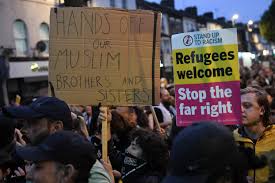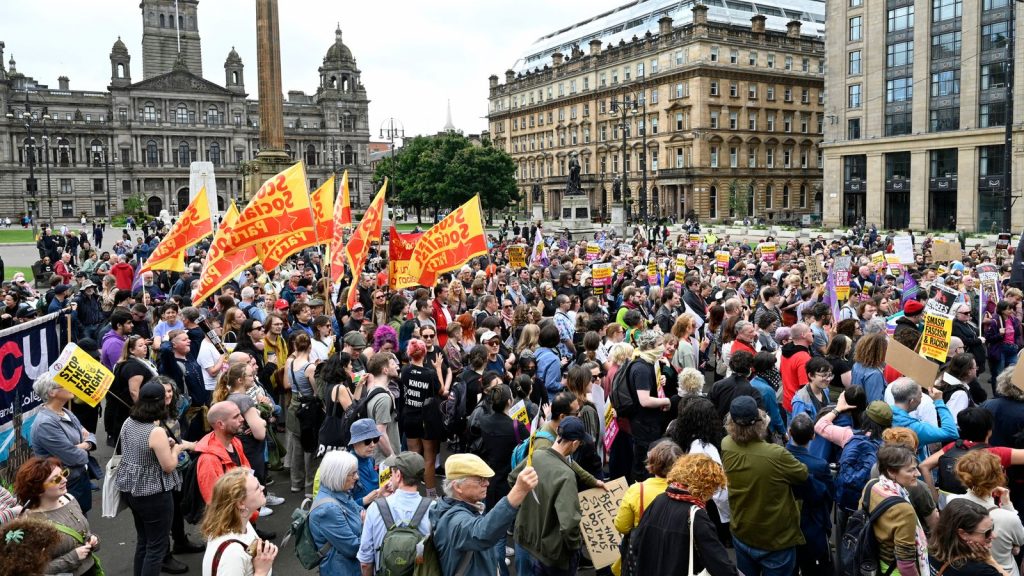The United Kingdom is currently facing a surge of civil unrest, marking one of the most tumultuous periods in recent history. The unrest, which began in the coastal town of Southport, has rapidly spread across the country, with violent protests and riots shaking cities from London to Belfast, UK. For those watching from around the world, the situation may seem both alarming and perplexing. There’s a lot of social media misinformation and here’s a closer look at what’s happening in the UK and why it matters on a global scale.
What Sparked the Riots?

The unrest was triggered by the tragic stabbing of three young girls at a dance class in Southport on July 29. The victims, aged between six and nine, were attending a Taylor Swift-themed event when they were brutally attacked. The incident left eight other children and two adults injured. The police swiftly arrested a 17-year-old suspect, clarifying that the attack was not linked to terrorism.
However, almost immediately, false information began circulating online. Misleading claims that the suspect was an asylum seeker who had arrived in the UK in 2023, coupled with incorrect allegations that he was Muslim, fueled widespread outrage. In reality, the suspect was born in Wales to parents of Rwandan descent. Despite police warnings against spreading misinformation, these rumors ignited anger and fear, leading to violent confrontations.
The Spread of Violence Across the UK
What started as isolated violence in Southport soon escalated into nationwide riots. Far-right groups and anti-immigration activists used social media platforms like Telegram to organize protests, which quickly turned violent. Cities such as Manchester, London, and Hartlepool saw significant unrest, with mosques, asylum seeker accommodations, and public buildings being targeted.
Far-right influencers have played a pivotal role in stoking tensions, making these riots intense and highly coordinated.
Global Repercussions and Concerns
The riots in the UK have not gone unnoticed by the international community. Several countries, including Malaysia, Nigeria, Australia, and India, have issued travel advisories, urging their citizens to avoid protest areas and remain cautious while in the UK. The violence has raised concerns about the spread of misinformation, the rise of far-right extremism, and the challenges posed by immigration and integration in modern societies.
The UK Government’s Response
In response to the escalating violence, UK authorities have launched a significant crackdown. Over 600 arrests have been made, and more than 150 individuals, including children as young as 11, have been charged. The government has promised swift legal action against those involved in the riots and those inciting violence online. Additionally, the UK has bolstered its police presence, with a “standing army” of specialist officers tasked with managing the unrest.

The government is also working closely with social media companies to curb the spread of misinformation, which has played a critical role in the escalation of violence. There are even discussions about extraditing influencers who are inciting violence from abroad.
Why This Matters Worldwide
The UK riots are not just a local issue; they have global implications. The events highlight the dangerous impact of misinformation, particularly when spread through social media. They also underscore the challenges many countries face regarding immigration, integration, and the rise of far-right ideologies. The UK riots remind governments and citizens worldwide how quickly tensions can escalate. Misinformation and extremist rhetoric fuel these dangerous situations.
As the situation continues to unfold, it will be important for the global community to monitor developments and learn from the UK’s experience to prevent similar outbreaks of violence elsewhere.













